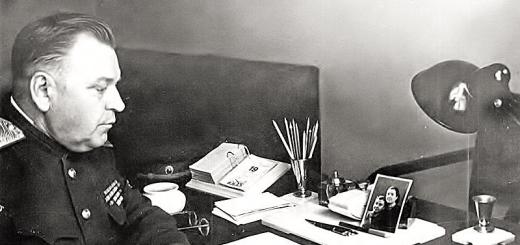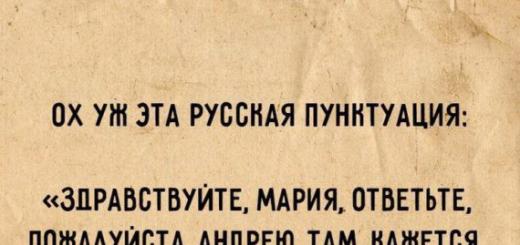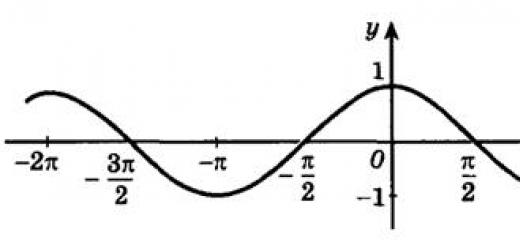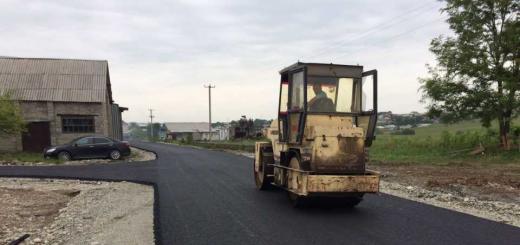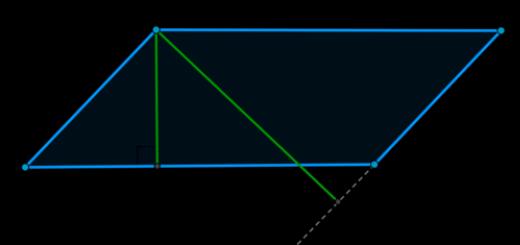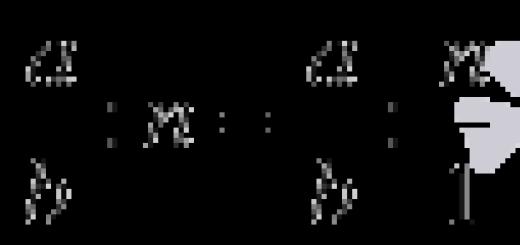Common phrases |
||
tso, wang, yes |
||
Please | hong tso chi |
|
Sorry | ||
Hello | ||
Goodbye | ||
I didn't understand | ||
What is your name? | ten anh (chi) la gi? | ten ankh la gi |
nya ve sin |
||
How much does it cost? | cai nay gia bao nhieu? | cai nai gia bao nhieu? |
What time is it now? | may gio ro'i nhi? | mau gio ro "and nhi? |
You speak English | co noi tieng khong? | tso noi tieng hong ankh? |
How to say it? | cai nay tieng noi the? | cai nai tieng noi te? |
I'm from Russia | toi đến từ Nga | toi den tou nga |
Hotel |
||
Store (shopping) |
||
Cash | ||
Credit card | thẻ tín dụng thẻ | tae ting dung te |
To wrap up | ||
No change | mà không cần dùng | ma hong san dung |
Very expensive | ||
Transport |
||
Motorbike | hae gang mai |
|
The airport | ||
ha he lua |
||
Departure | di ho hanh |
|
Arrival | ||
emergency cases |
||
Fire Department | sở cứu hỏa | with suu hoa |
do "n tsankh sat |
||
Ambulance | xe cứu thương | hae suu huong |
Hospital | benh vien |
|
hieu tuoc |
||
Restaurant |
||
nuoz tri tsau |
||
Ice cream | ||
Vietnamese language
What is the language in Vietnam
Official language in Vietnam- Vietnamese (tieng viet).
Vietnamese is also widely spoken in Cambodia, Laos, Thailand, Malaysia, Australia, France, Germany, USA, Canada. It is spoken by more than 80 million people worldwide.
Vietnamese language has its own characteristics in different regions of the country. There are three main dialects: northern, central and southern.
Since Hanoi is a city with a developed tourist infrastructure, in hotels, restaurants and cafes, the staff speaks spoken English. In the service sector, French and Russian are also in use. Difficulties in translation Russian travelers in the developed tourist centers of Vietnam are bypassed.
Vietnamese language has a complex phonological structure. One word, pronounced with different intonation and tone, can have up to six meanings.
For a long time Vietnamese language was influenced by the Chinese language. Two-thirds of the words of the Viet language come from Chinese, and during the period of French rule, the Vietnamese vocabulary was enriched with French words.
Before the beginning of the 20th century vietnam alphabet was hieroglyphic. But a little over a century ago, a letter in the Latin alphabet was introduced in the country. Diacritical marks were added to the Latin vowels to indicate the tone of the letter's pronunciation. The modern Vietnamese alphabet consists of 29 letters.
At least with him you will feel much more confident. Especially if you learn some useful phrases in Vietnamese. Most often, Vietnamese is needed in restaurants to deal with the menu. It is best to print a Vietnamese phrasebook so as not to be dependent on the level of charge of your gadgets.
I have prepared for you a small Russian-Vietnamese phrasebook.
| Tso, wang, yeah |
|
| Thank you very much | Kam he, kam he nhie "u |
| Please | Hong tso chi, hin wiu long |
| Sorry | |
| Hello | |
| Goodbye | |
| Good morning | |
| Good afternoon | |
| Good evening | |
| Goodnight | Chuts ngu ngong |
| How to say it in... | Cai nai tieng noi te nau... |
| Do you speak...? | Ankh (m) / chi (f) tsnoi tieng hong? |
| English | |
| french | |
| Ankh (m), chi (w) |
|
| Ong (m), ba (w) |
|
| What is your name? | Ten ankh (chi) la gi? |
| Howe, hong that |
|
| Cha, bo, ba |
|
| Twenty | |
| Thirty | |
| Fifty | |
| mot trieu |
|
| How much does it cost? | Cai nai gia bao nhieu? |
| What it is? | Tsai gi give? |
| I will buy it | toi mua cai nai |
| You have...? | Ong(ba)tso hong? |
| Little, little | |
| Tat tsa, het |
|
| How much does the ticket cost? | Gia ve la bao nhieu? |
| The airport | |
| Ga he lua |
|
| Bus station | ben hye bass |
| Departure | Dee ho hanh |
| Arrival | |
| Hotel | Hach san wanted |
| hai quaan |
|
| immigration control | Nyap cang |
| Khaak shan |
|
| I would like to book | laam en cho doi dat chook moot |
| Can I see? | Goy do te sam fom diok khon? |
| How much is the room? | Zya mot fom laa bow nyeu? |
| Ngai taang |
|
| We're moving out tomorrow | Ngai mai chung doi zeri dai |
| Credit card | Tae ding zung |
| Air conditioner | |
| Ngan hang, nha bang |
|
| Do "n tsankh sat |
|
| Hospital | Benh vien, nha tuong |
| hieu tuoc |
|
| Restaurant | Nha hang, kuan an |
| Truong Hots |
|
| Duong, pho |
|
| Quang truong |
|
| Tell me please… | Lam_yn te_bet... |
| What's the address here? | Dea chii laa zi? |
| Where is the bank | Ngan_han[g] o: daw? |
| Kya_han[g] |
|
| Bus stop | Cham se_buit |
| Salon | Hieu kat_tauk |
| Nya ve sing |
|
| taxi rank | ben so_si |
| Help me please | Lam_yn (please) zup (help) that (me, me) |
| Write me please | Lam_yn (please) viet ho (write) to (I, me) |
| Please repeat one more time | Sin nyak_lai mot lan nya |
| Explain to me please | Lam_yn zai_thyt tyo toy |
| Let me ask | Cho_fep toy hoi |
| What is it called in Vietnamese? | Kai_nai tyen[g] viet goi te_nao? |
| One hundred grams | Mot_cham (one hundred) gam (gram) |
| Thanks a lot | Zhet kam_yn an |
| What time is it now? | Mau gio ro "and nhi? |
| Monday | |
| Sunday | |
| Mua he (ha) |
|
The Socialist Republic of Vietnam is a country in the east of Indochina, in Southeast Asia. It borders China in the north, Laos and Cambodia in the west, the South China Sea in the east, and the Gulf of Thailand in the southwest. Vietnam consists of three historical regions: North (Bakbo), Central (Chungbo) and South (Nambo). The French, who colonized the country in the nineteenth...
Travel Phrasebook
The Socialist Republic of Vietnam is a country in the east of Indochina, in Southeast Asia. In the north it borders on China, in the west it borders on Laos and Cambodia, in the east it is washed by the South China Sea, in the southwest - by the Gulf of Thailand. Vietnam consists of three historical regions: North (Bakbo), Central (Chungbo) and South (Nambo). The French, who colonized the country in the nineteenth century, called these areas, respectively, Tonkin, Annam and Cochin.
One can only regret that Vietnam is located so far, but this is perhaps the only drawback. This country has a lot of advantages - amazing nature, excellent hotels with the highest quality service and very reasonable prices, clean, well-equipped beaches, exciting excursions, and the invariably friendly attitude of the Vietnamese. The Russian-Vietnamese phrasebook will be useful to travelers if they are going to visit amazing Vietnam with a rich history and pristine nature. We have collected the most commonly used words and expressions in Vietnamese with pronunciation for your convenience and more versatile communication.
See also "", with which you can translate into Vietnamese (or vice versa) any word or sentence.
Basic words
| Phrase in Russian | Pronunciation |
|---|---|
| Yes | Tso, wang, yeah |
| Not | hong |
| Thank you very much | Kam he, kam he nhie "u |
| Please | Hong tso chi, hin wiu long |
| Sorry | hin loy |
| Hello | hin chao |
| Goodbye | Tam biet |
| Bye | Ddi nhe |
| Good morning | hin chao |
| Good afternoon | hin chao |
| Good evening | hin chao |
| Goodnight | Chuts ngu ngong |
| How to say it in... | Cai nai tieng noi te nau?.. |
| Do you speak?.. | Ankh (m) / chi (f) tsnoi tieng hong? |
| English | Anhanh |
| french | Fap, thai |
| german | Duts |
| I | Toy |
| We | Chung toi |
| You | Ankh (m), chi (w) |
| You | Ong (m), ba (w) |
| They are | Ho |
| What is your name? | Ten ankh (chi) la gi? |
| Good | That |
| Badly | Howe, hong that |
| Wife | In |
| Husband | Cho "ng |
| Daughter | Tsong gai |
| Son | Tsong tai |
| Mother | Ma, ma |
| Father | Cha, bo, ba |
| Friend | Ban |
Numbers and numbers
| Phrase in Russian | Pronunciation |
|---|---|
| Zero | hong |
| One | Mot |
| Two | hai |
| Three | Ba |
| Four | Bon |
| Five | On the |
| Six | Sai |
| Seven | bai |
| Eight | There |
| Nine | Chin |
| Ten | Muoi |
| Twenty | hai muoi |
| Thirty | Ba muoy |
| Fourty | Bon muoi |
| Fifty | on muoi |
| One hundred | mot tram |
| One thousand | mot ngan |
| Million | mot trieu |
Shops and restaurants
Tourism
| Phrase in Russian | Pronunciation |
|---|---|
| Where?.. | Oh-dow |
| How much does the ticket cost? | Gia ve la bao nhieu? |
| Ticket | Ve |
| Train | he lua |
| Bus | Heh bass |
| Underground | Tau ddien nga "m |
| The airport | San Bai |
| Railway station | Ga he lua |
| Bus station | ben hye bass |
| Departure | Dee ho hanh |
| Arrival | Dan |
| Hotel | Hach san wanted |
| Room | Fong |
| The passport | ho chieu |
| Airplane | May bai |
| The passport | Ho chiu |
| Customs | hai quaan |
| immigration control | Nyap cang |
| Visa | Thii tuk |
| Hotel | Khaak shan |
| I would like to book | laam en cho doi dat chook moot |
| Can I see? | Goy do te sam fom diok khon? |
| Number | So |
| How much is the room? | Zya mot fom laa bow nyeu? |
| the date | Ngai taang |
| We're moving out tomorrow | Ngai mai chung doi zeri dai |
| Credit card | Tae ding zung |
| Air conditioner | Mai doe |
How to get
Public areas and attractions
| Phrase in Russian | Pronunciation |
|---|---|
| Buu-dien | |
| Museum | Bao tang |
| Bank | Ngan hang, nha bang |
| Police | Do "n tsankh sat |
| Hospital | Benh vien, nha tuong |
| Pharmacy | hieu tuoc |
| Score | Tsua hang |
| Restaurant | Nha hang, kuan an |
| School | Truong Hots |
| Church | Nha then |
| The outside | Duong, pho |
| Square | Quang truong |
| Bridge | Tsa "uca`u |
| Tell me please… | Lam_yn te_bet... |
| What's the address here? | Dea chii laa zi? |
| Where is the bank | Ngan_han[g] o: daw? |
| Score | Kya_han[g] |
| Bus stop | Cham se_buit |
| Salon | Hieu kat_tauk |
| Toilet | Nya ve sing |
| taxi rank | ben so_si |
| Help me please | Lam_yn (please) zup (help) that (me, me) |
| Write me please | Lam_yn (please) viet ho (write) to (I, me) |
| Please repeat one more time | Sin nyak_lai mot lan nya |
| Explain to me please | Lam_yn zai_thyt tyo toy |
| Let me ask | Cho_fep toy hoi |
| What is it called in Vietnamese? | Kai_nai tyen[g] viet goi te_nao? |
| One hundred grams | Mot_cham (one hundred) gam (gram) |
| Thanks | Kam_yn |
| Thanks a lot | Zhet kam_yn an |
Dates and times
| Phrase in Russian | Pronunciation |
|---|---|
| What time is it now? | Mau gio ro "and nhi? |
| Day | Ngau |
| A week | Tua "n |
| Month | Tang |
| Year | Us |
| Monday | Tu hai |
| Tuesday | Tu ba |
| Wednesday | tu tu |
| Thursday | Tu us |
| Friday | Tu sau |
| Saturday | Tu Bai |
| Sunday | Chu nhat |
| Spring | Mua huan |
| Summer | Mua he (ha) |
| Autumn | Mua tu |
| Winter | Mua dong |
Today we want to share really useful phrases in Vietnamese. This will be very useful when, upon arrival in Vietnam, you come, for example, to a market or a store. The Vietnamese mostly do not know English, rather they will know a few words in Russian. However, if you show respect for their culture and country with your knowledge of some phrases, this will help you to reduce the price and win them over.
.jpg)
The Vietnamese language is very difficult to perceive "by ear" because it contains many vowels and each of them can contain 6 keys. You have to have an almost musical ear to catch all these subtleties. For the Vietnamese, the Russian language is extremely difficult, because it contains a lot of hard, hissing and voiced consonants. But we will not bother our heads again and present you with some really useful phrases:
.jpg)
"Hello" - xing tiao
"Goodbye" - there beats
"Yes Yes
"No" - hong
"Thank you" - KAM ON
"Thank you very much" - KAM ON NIE "U
"What is the price?" - bao NIE "U
"Ice" - yes
"Bread" - bang mi
"Iced Tea" - cha yes
"Coffee with ice and condensed milk" - cafe su yes
"The Score" - Tinh Tien
Addressing the waiter or anyone - uh oh
"Rice" - com
"Fish" - ka
"Chicken" - ha
"Beef" - Bo Zero Hong
"One" -Mot
"Two" - Hai
"Three" - Ba
"Four" - Bon
"Five" - Nam
"Six" - Sau
"Seven" - Bai
"Eight" - There
"Nine" - Tien
"Ten" - Muoi
.jpg)
The pronunciation of Vietnamese words and phrases in this mini-phrasebook is given approximately. It is not recommended to actively use these words and phrases, since if the intonation is incorrect, the meaning of what was said can be greatly distorted. This is due to the fact that the Vietnamese language is a tonal language and it would seem that the same word, but, said differently, means completely different things and concepts.
The "g" sound at the end of a word is not pronounced clearly. If two “a” sounds are written, then this means just an elongated “a”. The sound "x" after "t" is pronounced weakly.
At the top of the image, the inscription in large letters in Vietnamese means "Dong Xuan Market" (Cho - market). In the lower part - "Hanoi Station". The word "ga" (station) comes from the French "gare".
Airport, arrival, control
Plane - May Bai
Passport - ho chieu
Customs - hai quaan
Immigration Control - Nyap Cang
Visa - thii tuk.
Laundry - zhatto (GIẶT ĐỒ)
In a hotel
Hotel - khaak shan
I would like to book - laam en cho doi dat chook moot
Can I see? - goy do te sam fom diok khon?
From ... to ... (meaning living from such and such a date to such and such) - du ... dan ...
Number - with
How much is the room? Zya mot fom laa bow nyeu?
Date - ngai taang
We're moving out tomorrow - ngai mai chung doi zeri dai
Credit card - tae ding zung
Air conditioner - mai lan
At the restaurant
Restaurant - nya han[g]
I would like - shin cho doi
Beef - thiet bo
pork - thyit heyo
Chicken - thiet ga
Fish - kaa
Nuts - dow fong
Spoon - kai thia
Knife - gon zao
Fork - kai nya
Numbers
Tourists often have to deal with numbers.
One - mot
Two - hi
Three - ba
Four - bon
Five - us
Six - shaw
Seven - bye
Eight - there
Nine - ting
Ten - my
Further simply: 11 - ten and one = my mot, twelve = my high, etc. Only 15 will not be mine for us, but for my lama.
Twenty - hi myoy (that is, two ten), 21 - hi myoi mot (two ten one).
One hundred - mot cham, that is, one hundred. 101 - mot cham lin mot, that is, one hundred, then something like zero, then one. 123 - mot cham hai myoi ba (one hundred,
two tens, three).
A thousand is ngin, a million is chieu.
Percentage - fan chum. 100% - mot cham fan cham.
Pronouns
I am that, mine is ku: and that
You are kau an or kau ti, depending on whether you are a man or a woman
address (an - man, ti - woman) yours - ku: a kau, a
also kua:an, kua:ti
You are an, yours is ku:a an
He is an_hey, om_hey, ku:a
She, her - ti_ey, ba_ey, ku: a, ti_ey,
ku:a ba_ey
We, our - tyun [g] _ta, tyun [g] _toy,
ku: a tyun [g] _ta, ku: a tyun [g] _toy
You, yours - how_an (how_ti, how om, how ba), ku: how_an (ku: how_ti,
ku: how about om, ku: how about ba)
They, them - ho ku: a ho
Who, whose - ah, ku: ah ah
What - zi, kai zi
This, that, this, these - nai
That, that, that, those - cue
Greetings
Hello - xin tiao (the sound "t" is pronounced as the average between "h" and "t"). This greeting is the most universal and most commonly used.
Its varieties:
When referring to a man under 40-45 years old - Tiao an!
when referring to a woman up to 40-45 years old - Tiao ti!
when referring to an elderly man / elderly woman - Tiao om! / Tiao ba!
… sir/mistress - Tiao om!/tiao ba!
… friend - Tiao bang!
... when referring to the youngest in age - Tiao um!
... when referring to a child - Tiao chiau!
When referring to a group of people, the word is added how
denoting the plural.
... when referring to men - Tiao kak_an / kak_om! (depending on age)
... when referring to women - Tiao kak_ti / kak_ba! (depending on age)
... when addressing men and women, if representatives of both are present
sexes - Tiao kak_an, kak_ti (kak_om, kak_ba)!
... friends (gentlemen, lord and lady, comrades) - Tiao kak_ban (kak_om, om_ba, kak_dom_ti)!
Goodbye - There _ beats an! (instead of an, you say ti, om, ba, etc., depending on who you say goodbye to). But, so it is said in solemn occasions. More common is simply "Tiao".
In the town
Please tell me - Lam_yn te_bet ...
What's the address here? Dea chii laa zi?
Where is the bank - ngan_han[r] o:dow?
The key word here is where - o: yeah?
For example: "Where is the train station?" - nya_ga o: yeah?
and so on …
Shop - kya_han[g]
Bus stop - cham se_buit
Hairdresser - hieu kat_tauk
Toilet - nya ve sing
Taxi rank - ben tak_si
Help me please - lam_eun (please) zup (help) that (me, me)
Please write to me - lam_eun (please) viet ho (write) to (me, me)
Please repeat again - sin nyak_lai mot lan nya
Please explain to me - lam_yn zai_thyt tyo toy
Let me ask you - cho_fep toy hoi
What is it called in Vietnamese? - kai_nai tyen [g] viet goi te_nao?
One hundred grams - mot_cham (one hundred) gam (gram)
Thank you - kam_yn.
Thank you very much - zhet kam_yn an (instead of an, they say ti, om, ba, etc., depending on who you thank).
Communication
Sorry - blue_loy
Khong can. Pronounced as "(k) hom kan" - do not need, do not need (categorical form).
Shopping, shopping - mua ban
I (that) want (muon) to try on (mak_thy) ...
dress (ao_wai) is (nai)
kuan (trousers) nai (these)
skirt (wai) nai (this one)
What is the price? - Zao bao nyeu?
Very expensive - dat cua
Couldn't it be cheaper? - ko zhe hung khom?
Electronic phrasebooks
With the development of compact electronic devices, they began to “sew” voice electronic translation programs, briefly called electronic phrasebooks. The same term applies to the devices themselves, the only function of which is electronic interpretation.
Electronic transfers are also carried out by other devices, such as smartphones or tablet computers, if they have the appropriate hardware and software functionality.
Electronic phrasebooks can also be used as mini-tutorials of a foreign language.
Some models of electronic phrasebooks contain programs and vocabulary databases for translating several dozen languages in various directions. They are especially attractive for those who travel a lot and often to different countries. Their cost is in the range of $150-200.

